25 years on: The failed coup that ended the Soviet Union (PART 2)
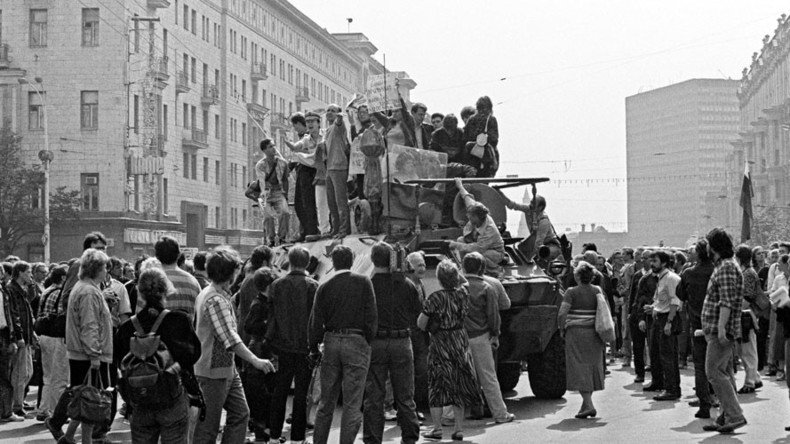
The junta that tried to seize power in the Soviet Union on August 18-21, 1991, is one of the most inept in the history of palace coups. Not only did it fail to take power, but it also brought about the opposite of its aims – the collapse of the USSR.
25 years on: The failed coup that ended the Soviet Union (PART 1)
Realizing that their media blackout was not working and that they were quickly losing the initiative, the plotters went to the other extreme and staged an unmoderated televised press conference.
Sitting in a row, the anonymous, ashen-faced men looked every bit the junta. While Yanaev was the nominal leader, he was never the true engineer of the coup, which was largely orchestrated by Vladimir Kryuchkov, the KGB chief, who, with the natural caution of a security agent, did not want to take center stage. Yanaev, meanwhile, did not look the part as acting president. His voice was tired and unsure, his hands shaking – another essential memory of August 1991.

After the new leaders had made their speeches, they opened the floor to an immediately hostile press pack, which openly quoted Yeltsin’s words accusing them of overthrowing a legitimate government on live television.
Referring to Gorbachev as “my friend Mikhail Sergeevich,” Yanaev monotoned that the president was “resting and taking a holiday in Crimea. He has grown very weary over these last few years and needs some time to get his health back.” With tanks standing outside, proceedings were quickly declining into a lethargic farce in front of the whole country.
With the conference doing little to sway those outside the White House, the junta decided to use force on the evening of August 20.
“We were told by defectors that the elite unit, Alpha, which was ordered to storm the White House, refused to take orders. They threatened them with court-martial and worse, but the operation was scheduled for 6pm, then 8, then 10, then 1am then 3am, but by then they knew it was too late,” said Yeltsin soon afterwards. “There were just too many people. But then again, in their orders they took that into account, and the soldiers were told to literally ‘sweep out’ any people that stood around the White House.”
With the crowds refusing to leave the embankment outside the building where Yeltsin was holed up, a group of rock musicians snuck amps and loudspeakers in trucks through the Moscow backstreets, and turned the besieged building into a giant, passionate rock arena.
“We were scared to turn up the volume too loud, because we thought we might drown out the noise of the units coming to kill us, but then we just went for it,” said Ruslan Miroshnik, one of the organizers of that famed Rock on the Barricades concert.
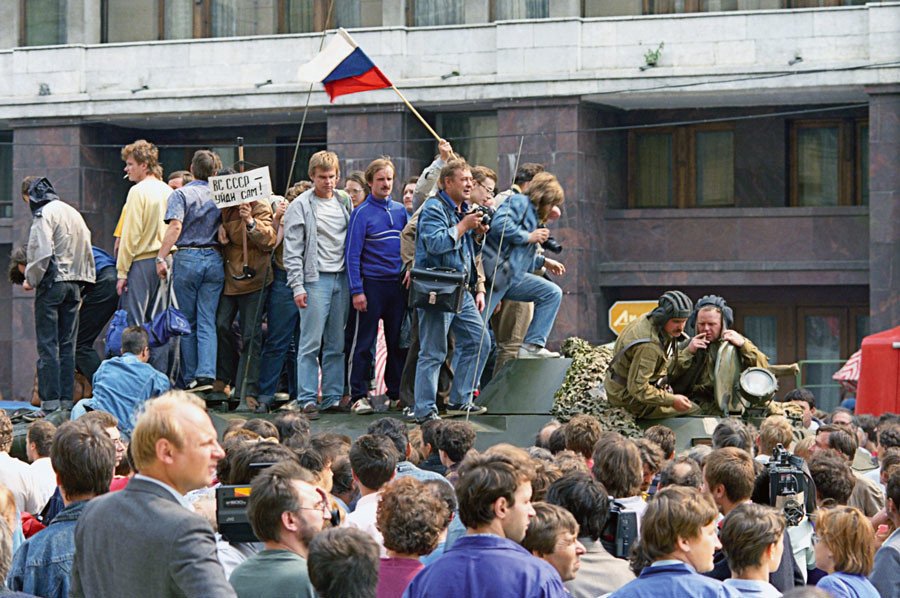
The plotters were quickly losing support of the military as more and more units refused to fight their own people and joined Yeltsin’s supporters.
But there were still instances of violence across the Soviet capital which led to the deaths of three anti-coup activists.
Dmitry Komar, Ilya Krichevsy and Vladimir Usov – all unarmed – lost their lives in an attempt to stop a column of armored vehicles from reaching Yeltsin’s headquarters in the White House.
There is still no clear picture as to what happened. The military said that the men’s deaths in a road tunnel was accidental, but witnesses claimed that security forces shot to kill and deliberately ran into the protestors.
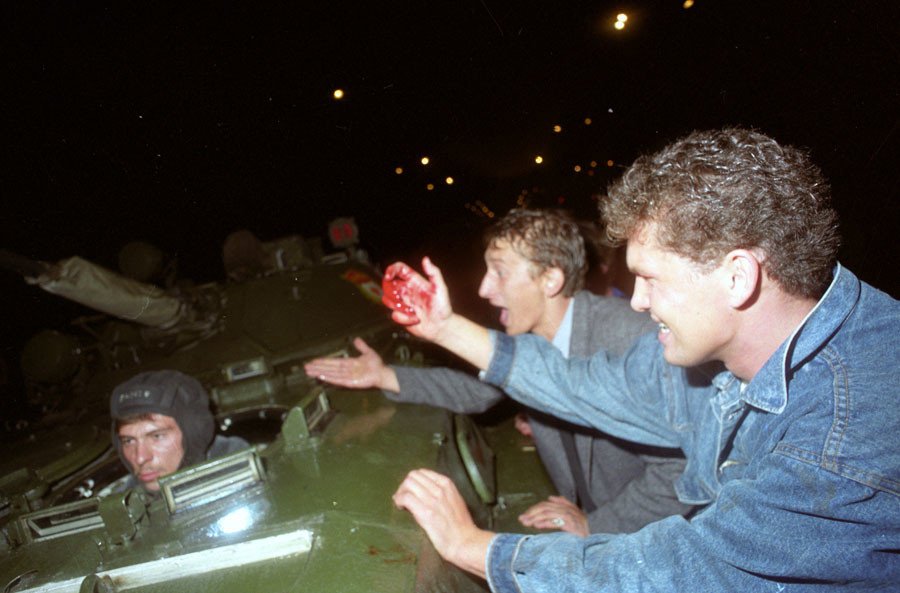
Komar, 22, Krichevsy, 28, and Usov, 37, became the martyrs of the democratic revolution, with thousands gathering for their funerals. They were also awarded the posthumous titles of Heroes of the Soviet Union – the highest honor in the country.
By that point the fate of the putsch had already been decided.
Meanwhile, as the most dramatic events in Russia since 1917 were unfolding in Moscow, Gorbachev was at his villa, watching the news on TV with his family. On the first night of the coup, dressed in a cardigan, he recorded an uncharacteristically meek address to the nation on a household camera, saying that he had been deposed.
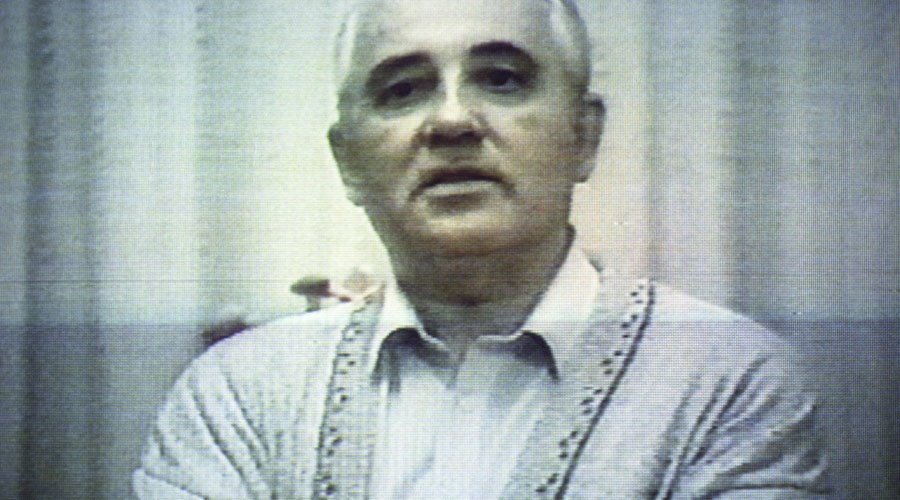
He did not appear to make any attempt to get the video out of Foros, and when it was broadcast the following week it incited a mixture of reactions, ranging from ridicule to the suspicion that he was acting in cahoots with the plotters, or was at least waiting out the power struggle in Moscow. Gorbachev likely was not, but neither was he as visible as Yeltsin, who came out and addressed the crowds repeatedly, at a time when just one shot from a government sniper would have been enough to end his life.
“It was like in a game,” said Yeltsin, a volleyball player in his youth, explaining how he and the defenders of the White House felt during those days. “To get the victory you have to think about how you can win, not about how you can avoid losing.”
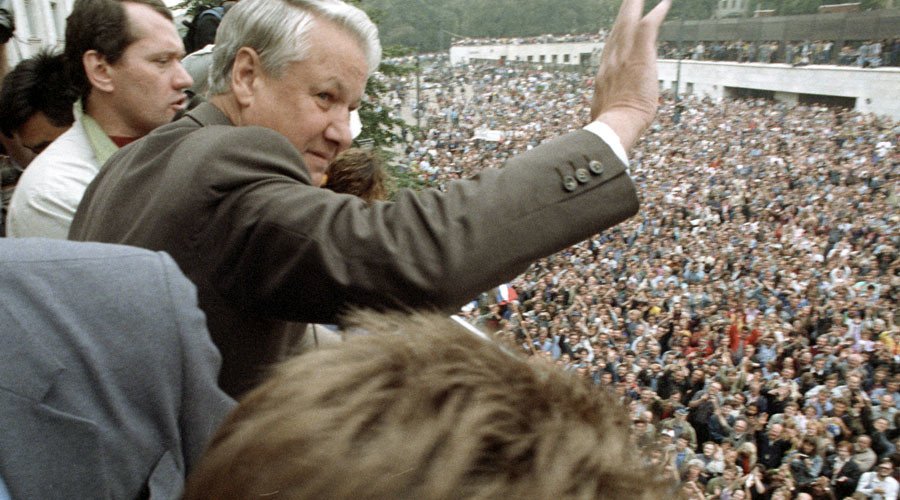
On the evening of August 21, with the coup evidently having failed, two planes almost simultaneously set out for Crimea from Moscow. In the first were the members of the junta, all rehearsing their penances; in the other, members of Yeltsin’s team, with an armed unit to rescue Gorbachev, who, for all they knew, may have been in personal danger. When the putschists reached Foros, Gorbachev refused to receive them and demanded that they restore communications. He then phoned Moscow, Washington and Paris, voiding the junta’s decrees and repeating the simple message: “I have the situation under control.”
But he did not. Gorbachev’s actions over the three days of the putsch could been viewed as a metaphor for his role in Russia’s political life in the previous months, and from that moment onward. Although the putschists did not succeed, a power transfer did happen, and Gorbachev still lost. For three days, deference to his formal institutions of power was abandoned, and yet the world did not collapse, so there was no longer the need for his lengthy mediation.
Walking down the steps of the plane upon landing in Moscow, blinking in front of the cameras, Gorbachev was clearly a man with no part left to play. He gave a press conference discussing the future direction of the Communist Party and inner reshuffles that were to come, all the while sounding out-of-touch with events.
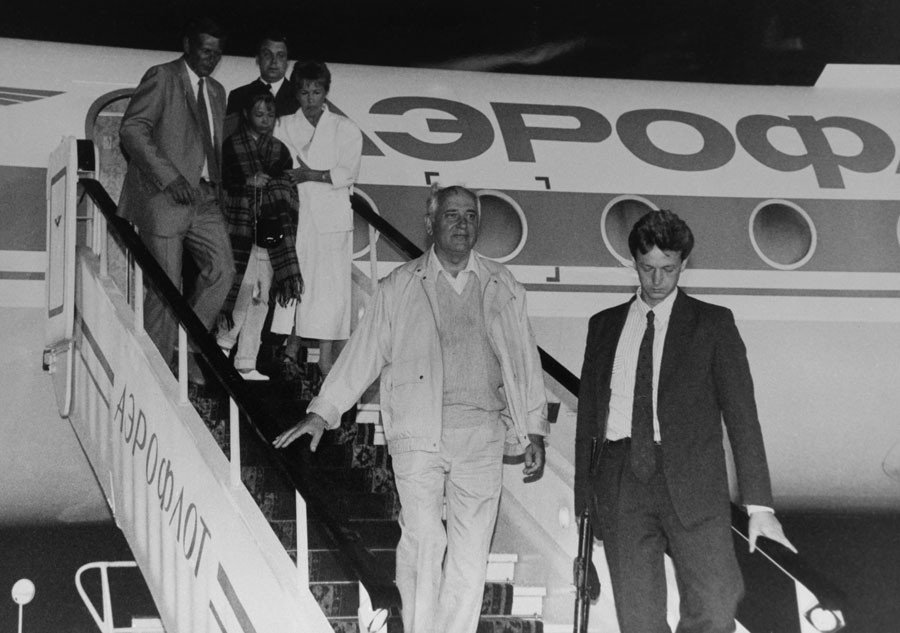
Two days later, Yeltsin drove home his advantage. Publicly announcing the arrests of each member of the Gang of Eight, and forbidding the public activity of the Communist Party to hearty applause, he did not want to let Gorbachev go quietly. In a physical assertion of his dominance, Yeltsin towered over him, jabbing him with a stack of papers with the minutes of his government’s meeting on the morning of the coup, which Gorbachev had not yet seen, repeating the phrase “Read it out loud!” The new leader said that Gorbachev had responsibility for appointing this cabinet, and was thus to blame for its mismanagement and botched putsch. But really, there could have been anything written on those sheets. Yeltsin was bullying his nominal boss on stage – a neat reversal of his previous public dressing-downs by his superior – with a helpless Gorbachev only able to agree.
In the following months the embers of the political rivalry still glowered, as Gorbachev tried to reassert his plans for a partial union, backed by Russia’s more conservative regions and lagging republics. But this merely forced Yeltsin and his counterparts from Ukraine and Belarus to cut themselves clean from the carcass of the USSR, and on December 8 they announced the dissolution of the Soviet Union, confirmed by the other republics on the following day. Gorbachev resigned as the president of the Soviet Union on December 25, 1991.
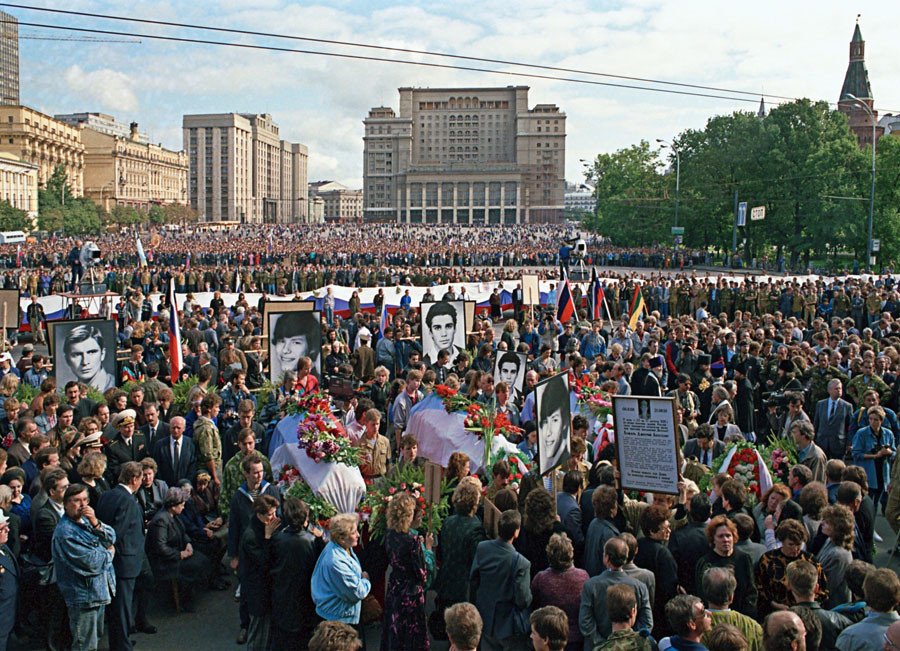
A new Russia was born. Although Gorbachev to this day maintains that the USSR would have survived long-term if not for the putsch, it did not change the direction of the Soviet collapse, which had been apparent for at least a year beforehand. In August 1991, however, even in his wildest ambitions Yeltsin could not have imagined that four months later he would be the sole leader of a new country.
The glory-filled part of the revolution was over. The August putschists were released less than 18 months later, and their pro-Soviet lamentations, freely expressed in plentiful interviews, chimed with the concerns of millions of disillusioned Russians. Yeltsin himself was soon to confront growing unpopularity and another White House standoff – only with him on the other side – as a disobedient parliament attempted to seize power.
There are no public commemorations of the defense of the White House today. But whatever people thought of the new Russia, its real history began there on August 19, 1991, with citizens defying tanks.












